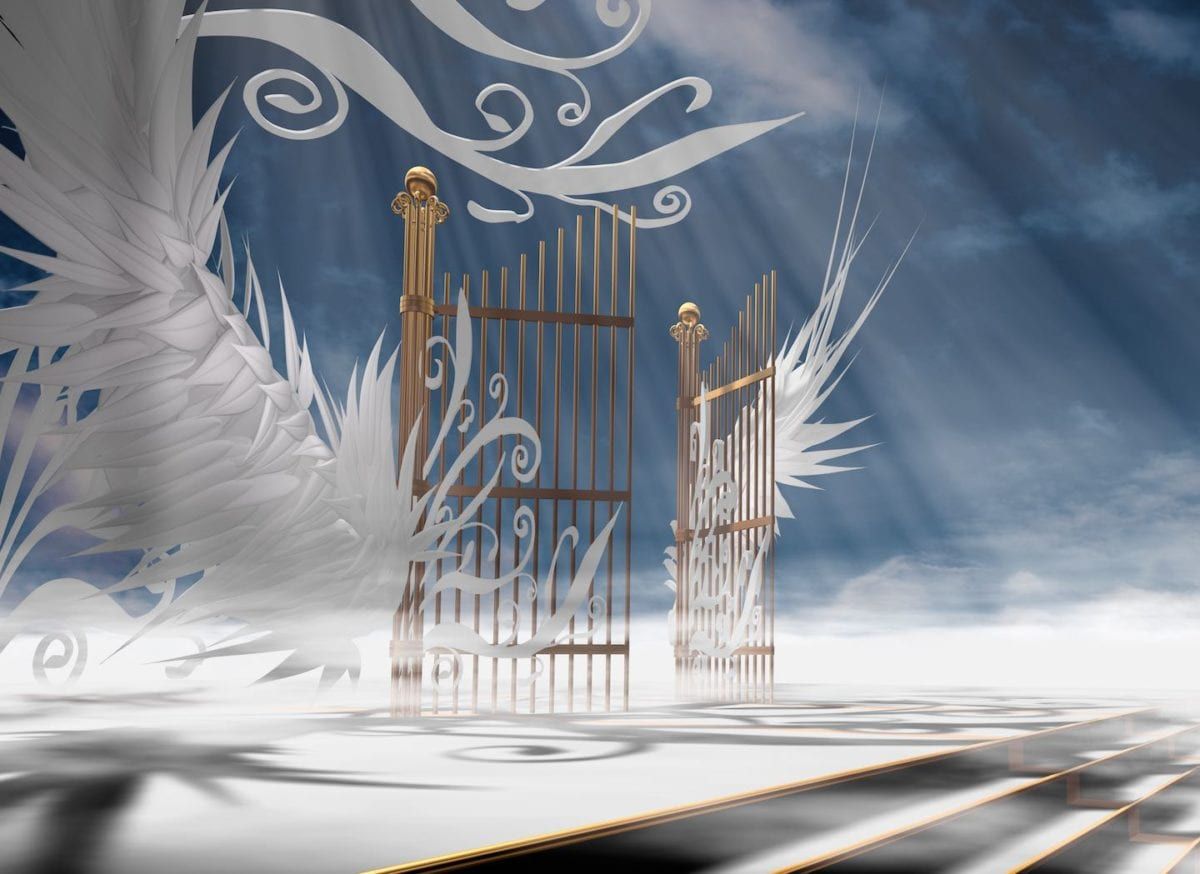“Do we really go to heaven or hell after we die?” someone asked me the other day.
“No.”
“Are you saying the scriptures are false?” he contended.
I replied with a little story I first read in a discourse by the Sufi mystic Hazrat Inayat Khan.
A disciple had been training under his master for years but was still devoid of any divine experience or clear understanding about anything.
One day, he requested his master, “Pray, please grant me a vision of heaven. It’s been so long now that I’ve been serving you.”
“My child,” the master said, “go and sit in the next room. Close your eyes and sit still. You’ll see heaven.”
“Really? Just like that.”
“Go.”
The disciple went into the next room and meditated. Surely enough, he had a vision but it was far from what he expected. All he saw was a vast ground and nothing else. There weren’t any beautiful palaces or rivers of honey. Just as there were no oceans of milk or bricks of ruby. The roofs were not diamond studded. Heck, there was nothing other than endless barren land. As disappointed as intrigued, he went back to his master.
“O, my murshid,” he pleaded hiding his disappointment. “Now that I’ve seen heaven, I should certainly like to see hell.”
“Hmm…” The master stroked his white flowing beard. “Very well then, go and sit in meditation again. You’ll have a vision of hell.”
The disciple did as instructed and once again, he saw nothing but the same vacant land. There were no fire-spitting snakes, no devil or ferocious animals, no one flaying anyone, no pots of boiling oil. Wherever he looked, there was just empty land from where he stood to all the way to the horizon, in all directions. “What the hell,” he thought. “This certainly couldn’t be it.”
“Master,” he spoke with conviction. “This was anything but a vision. I saw no heaven or hell.”
“You mean you were expecting glorious structures, magnificent scenery and unearthly beauty in heaven?”
“Yes.”
“Or, snakes, fire, devil or untold tortures in hell?”
“Exactly.”
“My son,” the master said. “There is nothing there. You will have to take everything from here. This is the place to gather everything, either the delights of heaven or the fires of hell.”
Above everything else, heaven and hell are two aspects of our attitude towards life. These are two warehouses of our emotions and karma. How stuffy it gets here, whether it’s fragrant or foul, it all depends on what we have stored in these warehouses. When we are content and grateful, we are in heaven. When we are angry, perturbed, or jealous we are in hell. Both are phases, stages and cyclical states of our mind.
If it’s heaven we desire, we just have to be mindful of our thoughts, actions and words. We will have to find forgiveness and compassion in our hearts. We will have to learn to practice gratitude. We may still be ambitious but grateful we must remain nonetheless. Contentment is the seed of all positive emotions. And clinginess is the mother of all negative ones. We get angry when we cling to our notion of what’s right or how things should be and things don’t pan out that way, for example. We are jealous when we cling to a person or what we believe is our right on that person and that person fails to come through the way we expect and so on.
Emotions are inseparable from human mind as waves from an ocean. And yet, like all other things we have learned in our lives, we can learn detachment too, we can practice gratitude. We may not be able to separate the waves but we can be better prepared for tides and tsunamis of desires and emotions. Vedas called it vairagya: a state of pleasant detachment (one learns with abhyasa, practice) where you are no longer tossed between various emotions like a football on the field.
“Heaven is the vision of fulfilled desire, and hell the shadow of a soul on fire,” says Omar Khayyam.
Desires, however, can’t be fulfilled by just fulfilling them. Fulfillment of desires fuels more. Instead, we ought to get to the root of our desires — our mind and befriend it. Your mind listens a lot better when it is in sync with your inner voice. You can prioritize better, you can reflect on which desires are really important to you rather than being carried away by every new thing that comes your way. Only a centered mind is the true receptacle of pristine awareness. Maybe a bigger house, a faster car is important to you or maybe it isn’t. You won’t know till you think through it or maybe until you experience it. Either way, so long as you are mindful about your choices, you will spend more time in heaven.
A rich man deeply attached to his material wealth, managed to take two bags full of gold to heaven. He was stopped at the gates.
“Nothing from earth is allowed here,” the angel said. “You must drop it.”
“Please,” he begged, “this is very important to me. It’s my lifetime’s earnings. Let me take them with me.”
They tried to tell him that it was just not possible but when he wouldn’t relent, they agreed to at least see what it was.
“What!” The angel said as soon as he saw gold in those bags. “You’ve brought pavement?”
In this infinite creation of unimaginable proportions, our acquisitions and attainments have little significance. Our world is tinier than the tiniest speck of dust in the world. Ultimately, to the world at large, what matters is not how fat your bank balance is but how big your heart is. There are plenty with billions to boast who lead painfully lonely lives. They often have no spiritual capital.
Our selfless acts add up to build our spiritual capital. To walk through heaven with humility or through hell with grace requires great spiritual wealth. And to build that wealth, we’ve got to lead our life with a sense of gratitude. Gratitude isn’t just being thankful, it is also being kind and charitable. When you dine at a restaurant and enjoy a good meal, you feel fulfilled. Good. You thank God. Good. But, it’s when you tip your server that you are truly expressing your gratitude. It’s when you thank him or her sincerely that you are building your spiritual wealth.
What all you have to tap into when feeling down or depressed is directly proportional to how much spiritual wealth you have earned and saved. And that’s the key: it can’t be loaned. It must be earned.
Every selfless act, every gesture of gratitude, every soft word, every kind thought, they make up who we are. They create our world. Heaven or hell, it’s not just within us, it is us.
Be kind. Count your blessings.
Peace.
Swami
A GOOD STORY
There were four members in a household. Everybody, Somebody, Anybody and Nobody. A bill was overdue. Everybody thought Somebody would do it. Anybody could have done it but Nobody did it.
Don't leave empty-handed, consider contributing.It's a good thing to do today.









Comments & Discussion
13 COMMENTS
Please login to read members' comments and participate in the discussion.